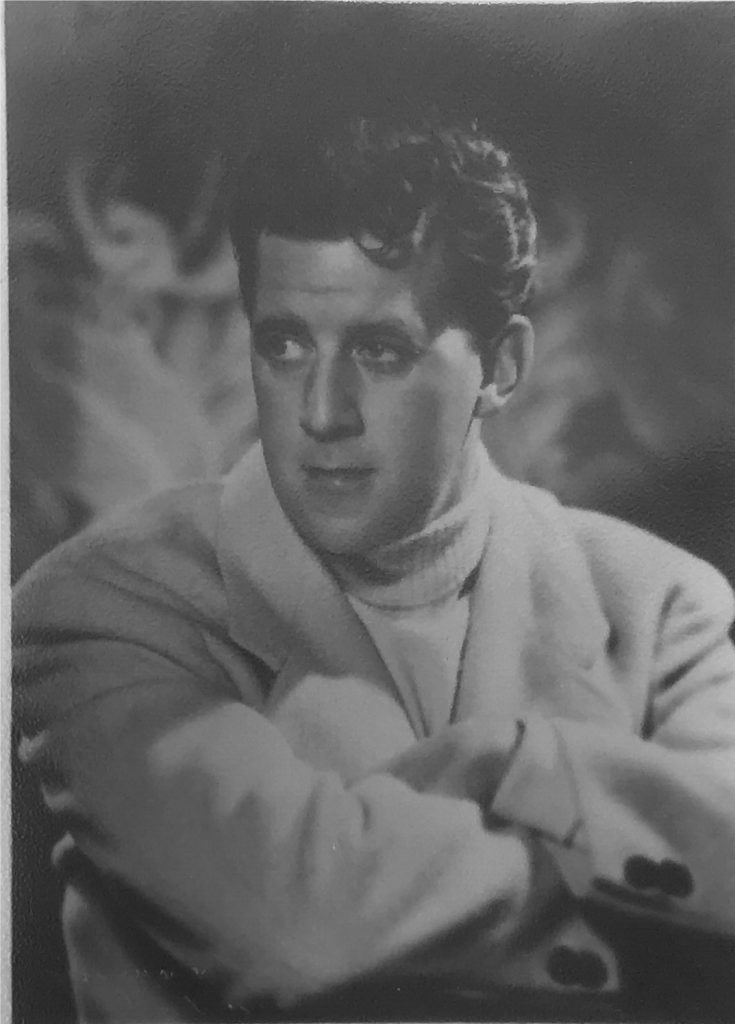
Bernard Braden obituary from “The Independent” in 1993.
Bernard Braden was born in Vancouver, British Columbia, in 1916, the son of a Nonconformist minister, Dr Edwin Braden, and his wife, Mary. He was educated at local schools and made his first appearance on the stage as a child at Kelowna Theatre, playing a goblin in Springtime. Inheriting his mother’s musical talent, he began his adult career in 1935 as a radio singer, later becoming announcer, actor and engineer in Vancouver. His career was interrupted for a year by TB (1937) but he returned to radio writing and acting in plays for the Canadian Broadcasting Corporation. In 1940 he worked with a 16-year-old actress, Barbara Kelly, who became his wife two years later. They moved to Toronto, where they scored a triumph acting in the serial John and Judy on the CBC radio network. Bernard wrote and produced plays for CBC.
In 1947 Braden spent two months in Britain, again for CBC, making a series of documentaries on post-war recovery plans, material subsequently published in 1948 in a book, These English. He returned to Britain in 1949 accompanied by his wife. They soon found work, Bernard making his first BBC broadcast on the Home Service in April in the Rattigan play While the Sun Shines, followed by his television debut from Alexandra Palace in Play the Game in June. Although his professional acting experience was limited to radio, he opened at the Aldwych Theatre as Harold Mitchell in Tennessee Williams’ play A Streetcar named Desire later that year. While still acting in Streetcar, Braden broadcast his first BBC radio series, Breakfast with Braden, starting at 8.15am in January 1950. This was followed by a second series, Leave your Name and Number, in which the Bradens played two Canadians living in London. The Daily Herald called it ‘the BBC’s biggest hit for years . . . listen tonight’.
The Bradens were portrayed on the front cover of the Radio Times in June 1950. A vision mixer recalls sitting spellbound during their audition at Alexandra Palace when a producer exclaimed ‘that’s television’. Together they appeared in a magazine programme, Kaleidoscope, and in 1951 they had their own television series, The Bradens at Home, the first production of T. Leslie Jackson, one of Braden’s fans. Jackson described him as ‘clever and original, an absolute delight to work with’. Because of her professionalism, Jackson used Barbara Kelly in What’s my Line?, the long-running series that changed Sunday night for those able to watch television.
Radio was dominant but the times were changing and by the time of the Coronation in June 1953 television had ceased to be a rich man’s toy. Bernard Braden was a television commentator for the Coronation, sited with Brian Johnston in Hyde Park. He also appeared in Commonwealth Cavalcade, a variety tribute, together with Joan Hammond, Ram Gopal and McDonald Bailey. The Bradens were now firmly established in Britain: another radio series, Bedtime with Braden, had started in November 1952, Barbara joining the cast previously used in Breakfast with Braden. Bernard had also broadcast three series with Gracie Fields on Radio Luxembourg, the only commercial radio station heard in Britain at that time.
When commercial television went on the air in 1955 Braden worked for both channels. He also appeared with his wife in a comedy at the Lyric Theatre in 1955 entitled Anniversary Waltz. His commercial television programmes included Chelsea at Nine (Granada TV series), and Let’s Go (ABC). But he is best remembered for On the Braden Beat (ATV), the first of many consumer programmes which he presented as a late-night show. This ran from 1962 to 1968 and won a Bafta award (in 1964). The same format was used when he returned to the BBC with the title Braden’s Week. Esther Rantzen was a researcher on this programme, continuing the tradition in her That’s Life series. Braden was allegedly sacked by the BBC for appearing in a Stork margarine commercial but did work for the BBC later.
Although Braden worked in films, television and the stage in the Seventies and Eighties he never had the popularity he achieved in the Fifties and Sixties. At this time he added ‘businessman’ to his job description, running an agency for after- dinner speakers. In his Who’s Who entry he describes himself as ‘a freelance actor and dabbler’: a modest self-description for a man who wrote plays and books, acted presented the first nationwide BBC schools programme in September 1957, chaired the Brains Trust, played Henry James on the Third Programme, and had many radio series, all performed with high professional standards which endeared him to his colleagues.
In addition to his Bafta award he was voted Light Entertainment Personality of the British Variety Club and received the Royal Television Society award for Artistry in Front of the Camera. In 1955 he was honorary Chancellor of the London School of Economics. In his first volume of autobiography, The Kindness of Strangers (1990), Braden tells of his happy married life (surely one of the longest in show-business) with Barbara Kelly, who shared his career, and their three children, Christopher, Kelly and Kim. It is not surprising that he lists ‘family’ among his interests. Radio listeners will remember him for his many series, his colleagues in radio and television as an all- round professional, and television history as the originator of the consumer programme.Promoted stories

